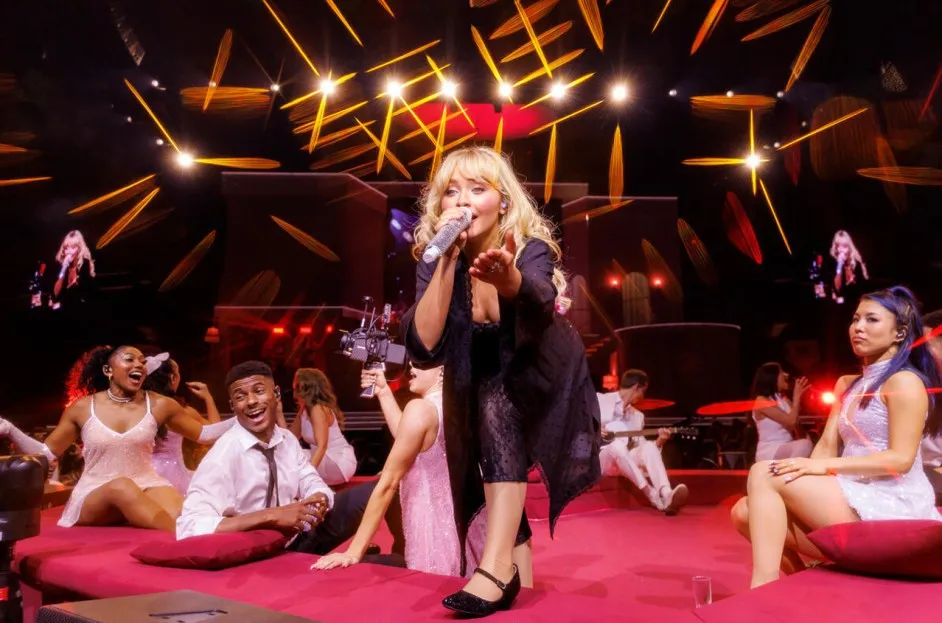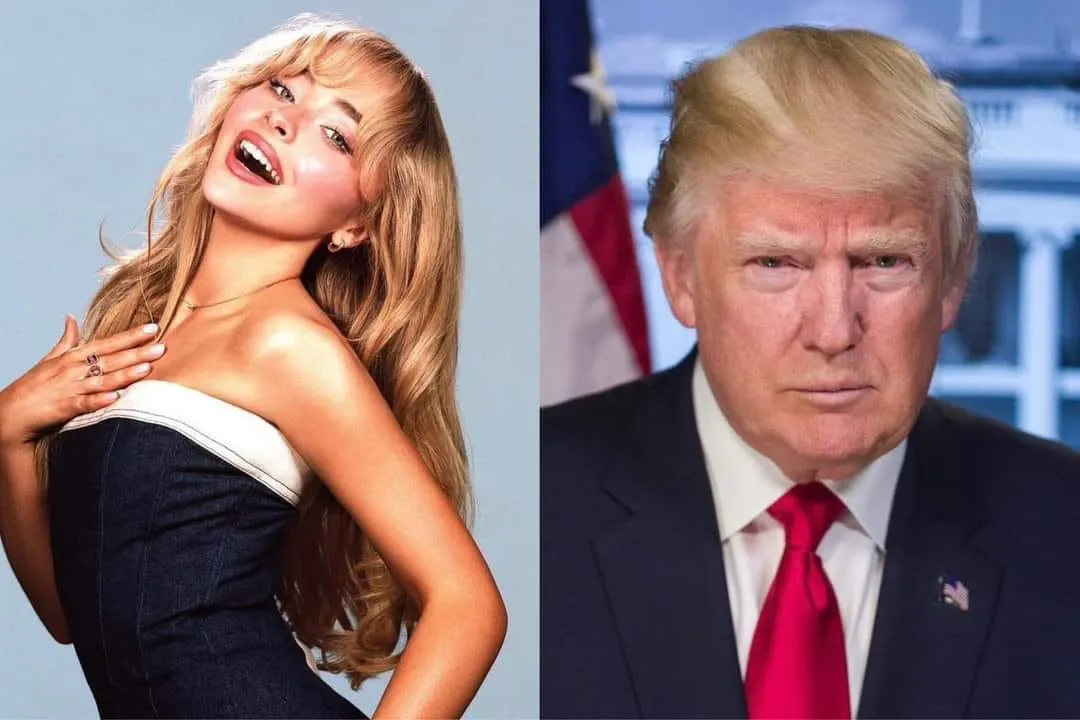
In a recent concert that captivated fans, singer and actress Sabrina Carpenter took a moment to address the current political climate in the United States, particularly in light of the recent election results. With emotion and urgency, she stated, “I feel very sorry for our country and to all the women here, I love you so much.” This heartfelt message resonated with many, especially as it unfolded against the backdrop of former President Donald Trump’s victory in the 2024 election, where he secured 295 electoral votes compared to Kamala Harris’s 226.
Carpenter’s comments reflect a growing concern among many Americans about the implications of Trump’s return to power. Known for her strong support of women’s rights, Carpenter’s expression of sorrow suggests a belief that Trump’s leadership may not align with the progressive ideals many supporters of Kamala Harris advocate for. Her remarks are significant in an era where the discourse surrounding women’s empowerment is increasingly polarized.

The stark contrast between Trump and Harris highlights the broader ideological battle within the country. While Carpenter’s support for Harris emphasizes a desire for policies that promote gender equality and women’s rights, it raises questions about the broader narrative of empowerment in America. Does women’s empowerment necessitate a Democratic leadership, or can it thrive under a Republican administration? Carpenter’s comments provoke discussion on whether Trump’s policies could equally support women’s issues, challenging the notion that only Democrats can champion gender equality.
Critics of Carpenter argue that her passionate response reflects a growing “woke” ideology that may alienate those who support Trump or have differing political views. This backlash raises an important question: in a nation divided by political ideology, can figures like Carpenter bridge the gap and foster meaningful dialogue about women’s rights across party lines? By expressing her feelings so publicly, she risks being viewed as part of a movement that is increasingly characterized by its polarizing rhetoric.

Moreover, Carpenter’s comments tapped into a deeper societal frustration with the current state of politics. Many Americans, particularly women, feel anxious about their rights and representation following the election. The emotional weight of her statement acknowledges this collective sentiment, demonstrating how political outcomes can deeply impact individuals on a personal level. As a public figure, her vulnerability offers a glimpse into the struggles faced by many who feel disenfranchised in the current political landscape.
The response to Carpenter’s remarks has been mixed. Supporters applauded her for using her platform to address crucial issues, reinforcing her status as a voice for the youth who are often more politically engaged than previous generations. Meanwhile, detractors see her comments as an overreaction, arguing that Trump’s presidency does not inherently negate the progress made in women’s rights or suggest that he cannot contribute positively to these issues.

As the debate continues, it is crucial to recognize that women’s rights and empowerment can be complex topics that transcend party affiliations. While Carpenter’s concerns are valid, they also invite further reflection on how the conversation surrounding women’s empowerment is framed in a politically charged environment. Can a more inclusive dialogue emerge that recognizes the contributions of all political spectrums in advocating for women’s rights?
In conclusion, Sabrina Carpenter’s remarks during her recent show encapsulate the emotional turmoil many Americans feel in light of the recent election results. Her passionate defense of women and criticism of Trump’s leadership reflect broader concerns about political representation and the future of women’s rights in America. As discussions continue, the challenge remains: fostering a space where differing viewpoints can coexist while advocating for the rights and voices of all individuals. Carpenter’s comments are just the beginning of what promises to be an ongoing conversation about empowerment, representation, and the role of politics in shaping society.


